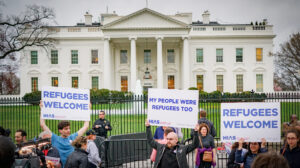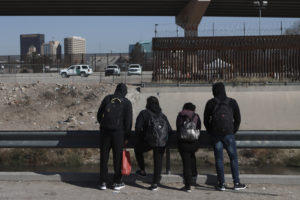Snowden: NSA Spying Targets China, ‘I Am Here to Reveal Criminality’
The whistle-blower and former NSA spy said the PRISM program he helped expose last week extends to people and institutions in Hong Kong and mainland China, and that he has resolved to leave his fate to "the courts and people of Hong Kong."
The whistle-blower and former NSA spy said the PRISM program he helped expose last week extends to people and institutions in Hong Kong and mainland China, and that he has resolved to leave his fate to “the courts and people of Hong Kong.”
Snowden spoke from a secret location there with South China Morning Post reporters. He addressed comments that he was unwise in taking refuge in Hong Kong by saying: “People who think I made a mistake in picking HK as a location misunderstand my intentions. I am not here to hide from justice, I am here to reveal criminality.”
“I have had many opportunities to flee HK, but I would rather stay and fight the United States government in the courts, because I have faith in Hong Kong’s rule of law,” he added.
The Hong Kong government has so far refused to comment on Snowden’s case. Many local lawmakers, legal experts, activists and citizens have called on Hong Kong to protect Snowden. Others, such as conservative Beijing legislator and former security chief Regina Ip Lau Suk-yee, said he should leave.
In The Guardian interview in which he revealed his identity to the world, Snowden explained that he came to Hong Kong because it “has a strong tradition of free speech” and “a long tradition of protesting in the streets.”
The director of the group Hong Kong Human Rights Monitor, Law Yuk-kai, expressed surprise at the whistle-blower’s choice of asylum, saying: “Snowden’s positive view of Hong Kong no longer matches the reality.”
The Guardian reported Wednesday: “On the face of it, Hong Kong appeared a strange choice for Snowden since it has an extradition treaty with the US and leans towards co-operating with US requests.”
The paper added: “Although China has had sovereignty over Hong Kong since 1997, it has a different judicial system from mainland China and a tradition of free speech. Beijing normally does not become involved in extradition hearings but could make an exception in this case because of its high-profile nature, choosing either to block it or to grant any US request. No extradition request by the US has yet been filed.” Snowden vowed to fight extradition to the U.S.
The whistle-blower has been in Hong Kong since May 20, after leaving his home in Hawaii.
— Posted by Alexander Reed Kelly.
Your support matters…South China Morning Post:
Snowden said that according to unverified documents seen by the Post, the NSA had been hacking computers in Hong Kong and on the mainland since 2009. None of the documents revealed any information about Chinese military systems, he said.
One of the targets in the SAR, according to Snowden, was Chinese University and public officials, businesses and students in the city. The documents also point to hacking activity by the NSA against mainland targets.
Snowden believed there had been more than 61,000 NSA hacking operations globally, with hundreds of targets in Hong Kong and on the mainland.
“We hack network backbones – like huge internet routers, basically – that give us access to the communications of hundreds of thousands of computers without having to hack every single one,” he said.
“Last week the American government happily operated in the shadows with no respect for the consent of the governed, but no longer. Every level of society is demanding accountability and oversight.”
Independent journalism is under threat and overshadowed by heavily funded mainstream media.
You can help level the playing field. Become a member.
Your tax-deductible contribution keeps us digging beneath the headlines to give you thought-provoking, investigative reporting and analysis that unearths what's really happening- without compromise.
Give today to support our courageous, independent journalists.









You need to be a supporter to comment.
There are currently no responses to this article.
Be the first to respond.